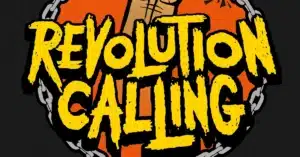The Best Rock Albums of the 1970s: A Golden Era of Sound
The 1970s stand as a pivotal decade in the history of rock music. It was a time when boundaries were pushed, genres were born, and artists dared to dream big. With the influence of psychedelic rock in decline and the rise of progressive rock, hard rock, heavy metal, punk, and glam, the 70s gave birth to timeless albums that still resonate with listeners today. Here’s a deep look into the best rock albums from this golden era.
1. Pink Floyd – The Dark Side of the Moon (1973)
An undisputed masterpiece, The Dark Side of the Moon is perhaps the most iconic progressive rock album ever recorded. It explores themes of time, mental illness, greed, and mortality with a level of sonic sophistication that was unprecedented. Alan Parsons’ engineering and the band’s atmospheric compositions elevated the concept album to high art. Songs like “Time” and “Us and Them” are emotional journeys, making this a perennial favorite across generations.
2. Led Zeppelin – IV (1971)
Led Zeppelin’s untitled fourth album, often referred to as Led Zeppelin IV, is a monumental achievement in hard rock. From the thunderous opener “Black Dog” to the mystical, ethereal “Stairway to Heaven,” the band forged a perfect blend of blues, folk, and rock. Jimmy Page’s guitar wizardry, Robert Plant’s soaring vocals, and the tight rhythm section of Bonham and Jones are all on full display here. This album helped define the sound of classic rock.

3. The Rolling Stones – Exile on Main St. (1972)
Raw, loose, and brilliantly chaotic, Exile on Main St. is the Stones at their grittiest. Recorded in a French villa while fleeing tax issues, the album is steeped in blues, gospel, country, and rock and roll. It’s a double LP that requires multiple listens to fully appreciate its depth and range. “Tumbling Dice” and “Shine a Light” are highlights among a dense, vibrant tracklist.
4. Fleetwood Mac – Rumours (1977)
Born from personal turmoil and emotional disintegration, Rumours became one of the best-selling albums in history. Its impeccable pop-rock craftsmanship, layered harmonies, and introspective lyrics made it relatable and radio-friendly. Tracks like “Dreams,” “Go Your Own Way,” and “The Chain” display emotional transparency with musical elegance. It’s a flawless example of how chaos can produce beauty.
5. David Bowie – The Rise and Fall of Ziggy Stardust and the Spiders from Mars (1972)
David Bowie transformed glam rock into a vehicle for complex narratives and androgynous self-expression. With Ziggy Stardust, he created an alter ego that allowed him to explore fame, isolation, and identity. The album is theatrical, musically diverse, and lyrically profound. Songs like “Starman” and “Moonage Daydream” are both catchy and existentially rich.
6. Bruce Springsteen – Born to Run (1975)
Springsteen’s breakthrough record is an ode to American dreams and youthful escape. Every track feels like a movie scene, with “Thunder Road” and “Jungleland” serving as dramatic, poetic epics. The E Street Band delivers monumental performances, and the production captures both grandeur and intimacy. It cemented Springsteen as “The Boss” of heartland rock.
7. Queen – A Night at the Opera (1975)
Queen’s most ambitious and extravagant album, A Night at the Opera, pushes the boundaries of rock with baroque influences, hard rock, and operatic flair. The magnum opus “Bohemian Rhapsody” alone would secure its place in rock history, but tracks like “Death on Two Legs” and “’39” prove the album’s eclectic genius. Freddie Mercury’s vision and vocal power shine at every turn.
8. Black Sabbath – Paranoid (1970)
Considered the cornerstone of heavy metal, Paranoid introduced a darker, heavier sound that diverged from the psychedelic tendencies of the 60s. Ozzy Osbourne’s haunting vocals, Tony Iommi’s crushing riffs, and Geezer Butler’s apocalyptic lyrics forged a genre. “Iron Man,” “War Pigs,” and the title track became instant anthems of rebellion.
9. The Who – Who’s Next (1971)
Originally conceived as part of the aborted Lifehouse project, Who’s Next ended up as The Who’s finest work. It blends synthesizers with guitar-driven rock, producing hits like “Baba O’Riley” and “Behind Blue Eyes.” The album captures both personal struggle and social commentary with power and precision. It remains one of the most influential albums of its time.
10. Genesis – Selling England by the Pound (1973)
This quintessential progressive rock album showcases Genesis at the peak of their creative powers. With Peter Gabriel’s theatrical vocals and Steve Hackett’s lyrical guitar work, the album is poetic, whimsical, and epic. “Firth of Fifth” and “The Cinema Show” are masterclasses in musical storytelling and technical brilliance. It’s a highlight of the British prog rock movement.
11. Eagles – Hotel California (1976)
Polished and haunting, Hotel California critiques the excesses of American life with beautiful melodies and guitar duels. The title track’s extended solo became legendary, while songs like “New Kid in Town” showcase the band’s soft rock sensibilities. It’s a reflection of the end of the 70s dream.
12. The Clash – London Calling (1979)
London Calling redefined punk by absorbing reggae, ska, and rockabilly into its sound. It’s bold, politically charged, and musically adventurous. Tracks like “Spanish Bombs” and “Clampdown” deliver both energy and intelligence, making it one of the decade’s most important records.
13. AC/DC – Highway to Hell (1979)
The final album featuring Bon Scott, Highway to Hell is a raw and rebellious blast of rock and roll. The title track is one of the most recognizable riffs ever recorded. It’s loud, unapologetic, and eternally cool.
14. Yes – Close to the Edge (1972)
A defining work of symphonic progressive rock, Close to the Edge consists of just three long tracks that explore spiritual, philosophical, and musical themes. Its complexity and ambition make it a high point of the genre. Jon Anderson’s vocals and Steve Howe’s guitar work are transcendent.
15. Neil Young – Harvest (1972)
Harvest is Neil Young’s most commercially successful album, combining introspective lyrics with folk and country rock textures. “Heart of Gold” became an anthem of vulnerability and simplicity. The album’s sparse beauty has never aged.
Conclusion: A Decade of Sonic Transformation
The 1970s were a turning point for rock music. Artists were no longer bound by the three-minute single format; instead, they embraced experimentation, concept albums, and diverse sonic textures. Whether it was the grandeur of Pink Floyd, the flamboyance of Queen, the grit of the Rolling Stones, or the poetic narratives of Bruce Springsteen, each of these albums represents a pillar of rock history. These records not only defined a decade—they set the gold standard for what rock music could be.


















